Over the past year I have inadvertently become something of an amateur ornithologist. When the corona business arrived, I was on a break from paid employment while I worked on my second and third novel. That break ended up lasting a lot longer than I thought and also included the writing of my book on the corona event. Nowadays, I’m back in a paid job but am working from home. I live about half a kilometre from the Werribee River with a major bird wetlands only about ten kilometres from my house so the area is rich in bird species. As my work desk overlooks my backyard, I get to watch as they come and go. Birds seen in my area on a normal day include, in rough order of size: sparrows, New Holland honeyeaters, willy wagtails, starlings, Indian mynas (grrrrr!), rainbow lorikeets, blackbirds, spotted doves, quail, wattlebirds, magpies, cockateels, galahs, crows and sulphur-crested cockatoos.
One of the things I have learned about birds in the last year or so is that mimicry is a big thing and not just within the same species but across species. For example, I put in a bird bath in the early summer of 2019. It was a very hot summer that year but not a single bird looked at the birdbath for more than a week. One day, an enterprising blackbird landed a took a drink. Within ten minutes, all kinds of other birds were drinking and the bath has been a hit ever since. The same dynamic played out with my pear tree. Again, a blackbird was the initial culprit who learned that the fruit was mighty tasty. Another blackbird joined in. That was ok because there was heaps of fruit on the tree and I noticed that if I just threw a pear on the ground the blackbirds would bicker all day over it and the damage was mitigated. The real problems began when the New Holland honeyeaters saw what the blackbirds were doing and decided to copy. The wattlebirds then copied them and I had to take defensive action to save the remaining pears (fortunately it was mid autumn by that time and I had already eaten a majority of the fruit anyway).
As I posted about here, I have recently added another species of bird to the garden: chickens. It’s been fun to observe their behaviour. Like the other birds, copying is a big thing for chickens. A week ago I was eating a bunch of grapes off one of my backyard vines. I threw a few grapes to the chickens assuming they would eagerly devour them but they showed no interest. Then, just yesterday, one of the chickens tried a grape for herself off another vine. The others saw her and instantly rushed over to see what this new discovery was about. All of sudden, the chickens were mad about grapes. Fashion seems to be a thing in the bird world as much as the human.
Another thing that birds and humans share in common is a social hierarchy. The human one is far more complex and there are multiple hierarchies across different domains. Nevertheless, we also have the equivalent of a pecking order which is why the behaviour of one of my new chickens reminded me of an old story about the Greek philosopher Diogenes. But, before we get to that, let’s meet the chickens.
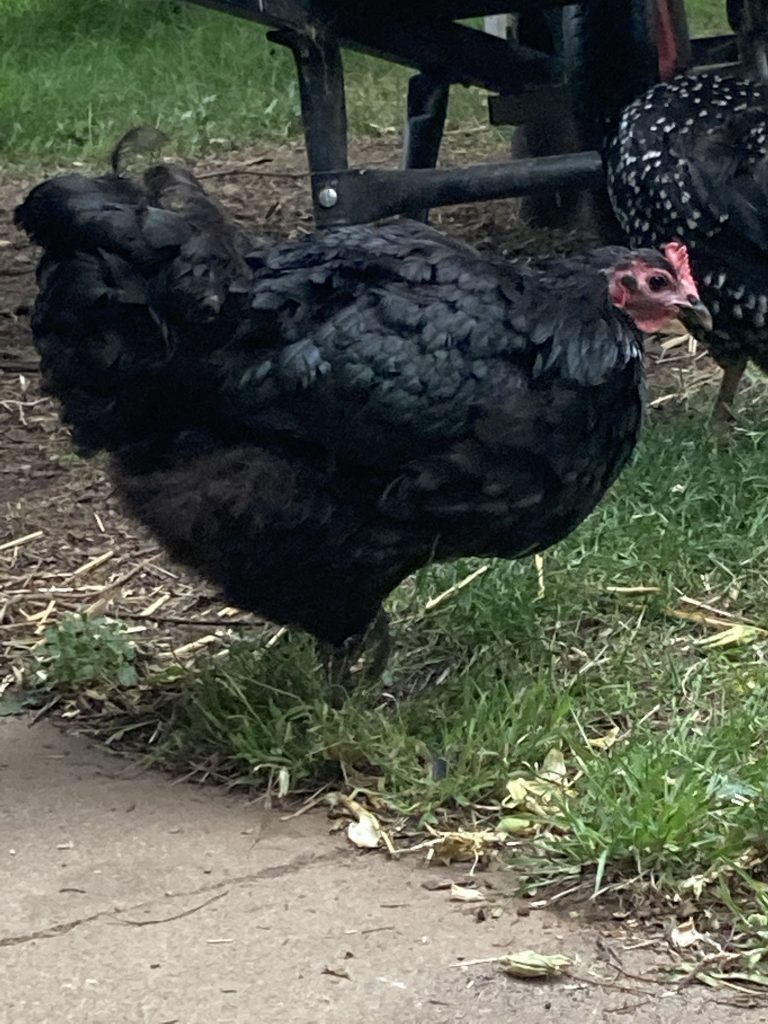
First up is the top hen, a black Australorp. She’s a beautiful bird with shiny black feathers who is noticeably larger than the others and doesn’t mind throwing her weight around especially when food comes into the equation. She’s especially hard on….
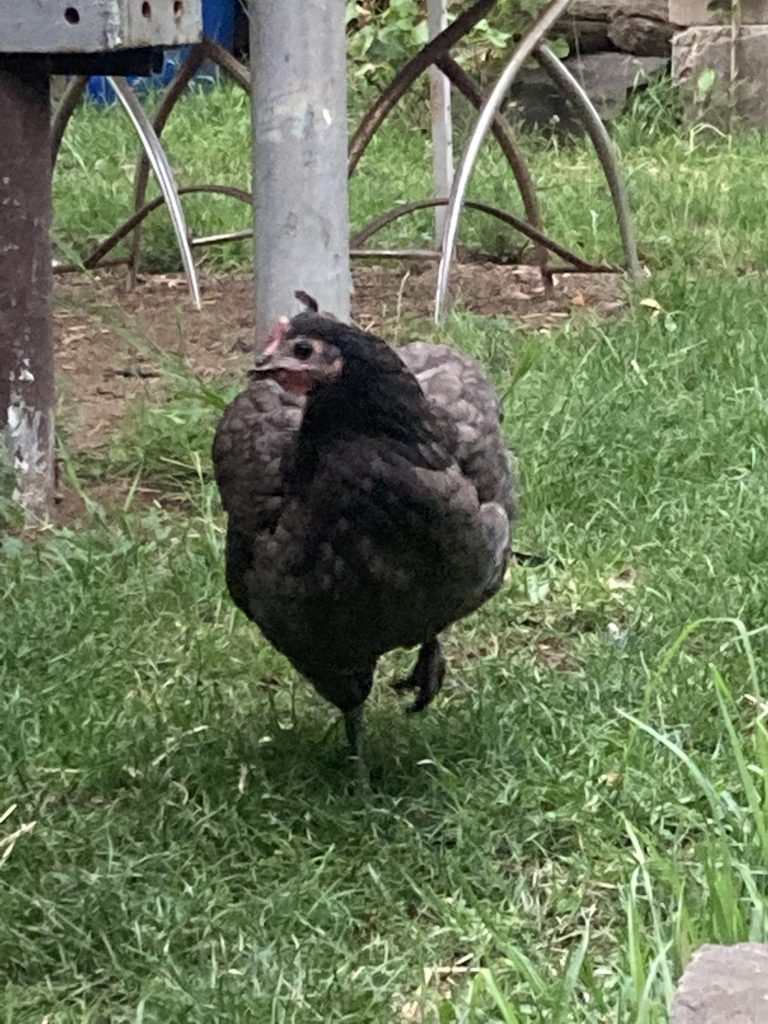
The number two chook: a blue Australorp. Blue is a moody bird who is clearly the smartest of the group (by contrast, the black Australorp seems quite dumb). What she receives from the top hen she dishes out to the next hen down the line:
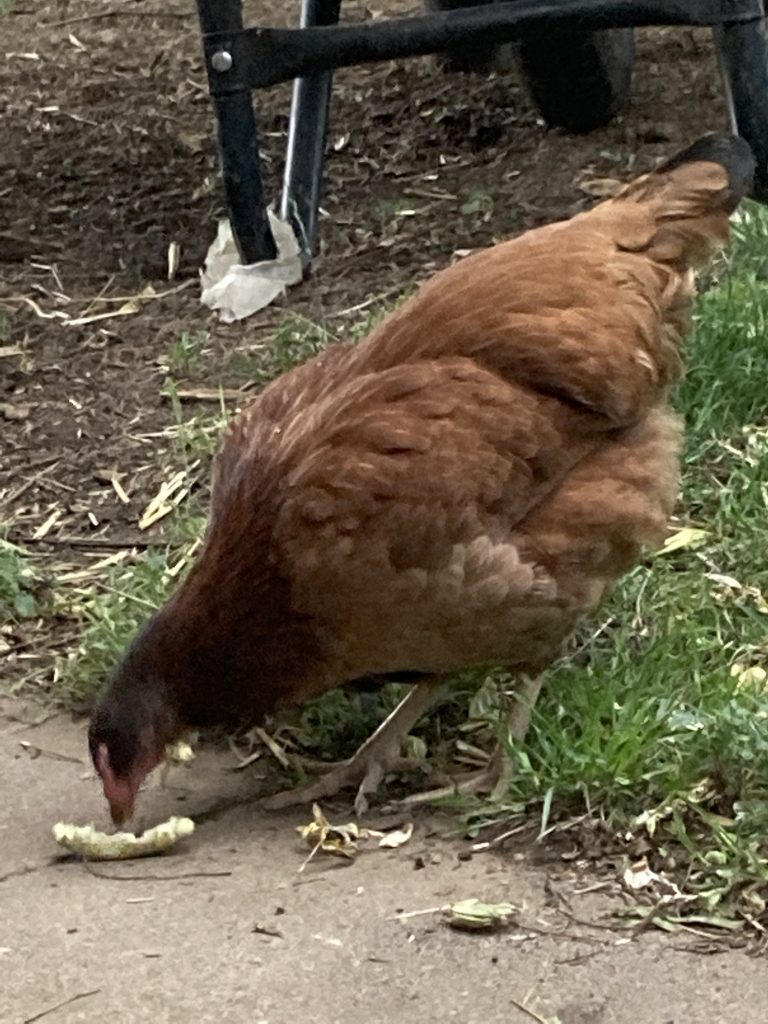
A rhode island red. Also a very attractive and smart bird. She’s actually a little bit bigger than the blue Australorp but just doesn’t have the fire in the belly and backs out of any engagement.
Which leaves the fourth hen who, for reasons that will become clear in a moment, I have named Diogena.
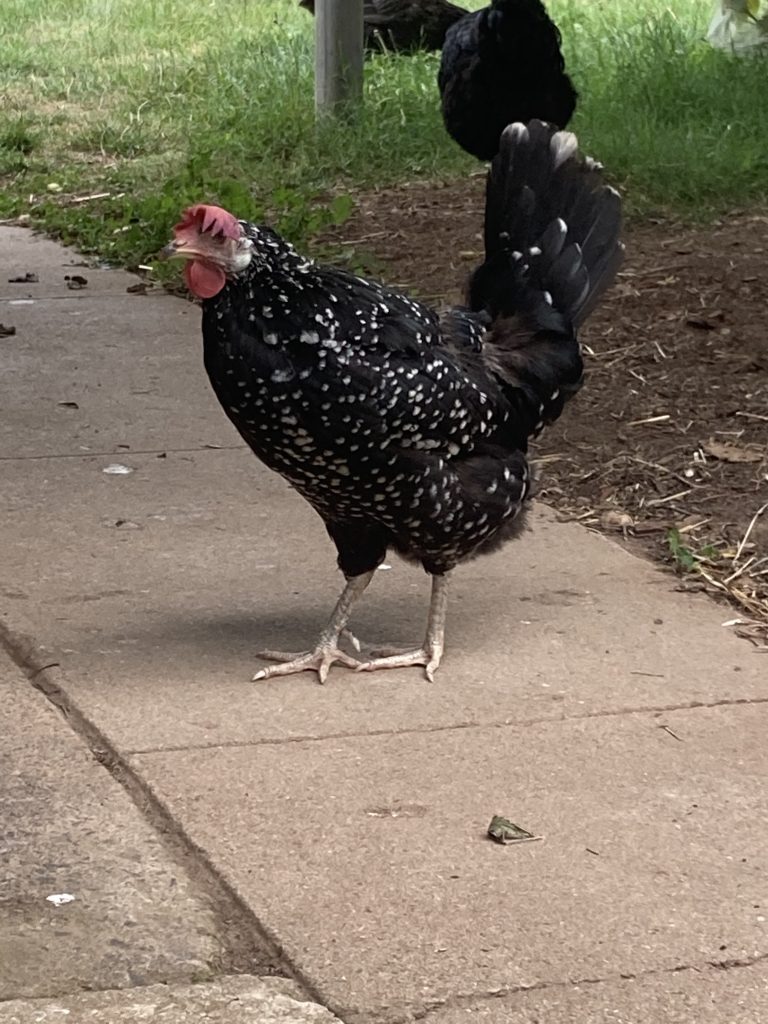
Diogena is an Ancona breed. Originally, I had assumed Diogena was the bottom chicken in the pecking order. When I got the chickens home the first time, she seemed to integrate the worst. In fact, I was worried she was sick as she didn’t seem to eat and wasn’t socialising with the other chickens. But she slowly integrated with the group and began eating and everything settled into a nice rhythm. Diogena is clearly the smallest chicken of the group, another reason why I had assumed she was bottom rung on the ladder. Then something interesting happened.
I was giving the chickens some zucchini as a treat (they love zucchini and I don’t). As a good chicken owner, I try to apportion the treats geographically far enough apart that every chicken gets at least some. But as the treat gets devoured and supply runs short, inevitably the pecking order is asserted and the top chicken hoards whatever is left. The black Australorp ruthlessly enforces this rule at such times and on this occasion had successfully chased the blue Australorp and the Rhode Island Red away. Diogena, in her normal fashion, hadn’t contested the treat. She will eat one if thrown her way but otherwise stays out of the fray. However, on this occasion she decided to wander over to the Black Australorp and help herself to some zucchini. I watched on expecting her to get the same nice hard pecking the others had got but was amazed to see that not only did the Black Australorp not peck Diogena, she forfeited the zucchini to her. This got me thinking and I realised I had never seen Diogena either peck or be pecked. She seemed to be outside the pecking order.
Apart from food, the other main way the pecking order is enforced is over who gets which roosting position in the coop. Higher is better and, in my coop, closest to the wall on the higher roosting bars is the most coveted position. Once the hens had learned to use the roosting bars, inevitably it was the two Australorps on the upper bars and the other two below. This was the way it was for the first few weeks. Occasionally, the Rhode Island Red would get above her station and jump up top but the blue Australorp would kick her off down below where she belonged. Until the day in question, Diogena had done her usual thing of casually roosting at the bottom and avoiding any disagreements. But not this day. This day Diogena decided she was going to roost on the top bars. Not just that, but in the coveted wall position. I thought for sure that she would be booted back to her place but yet again, the black Australorp just ceded the ground and took up a position below.
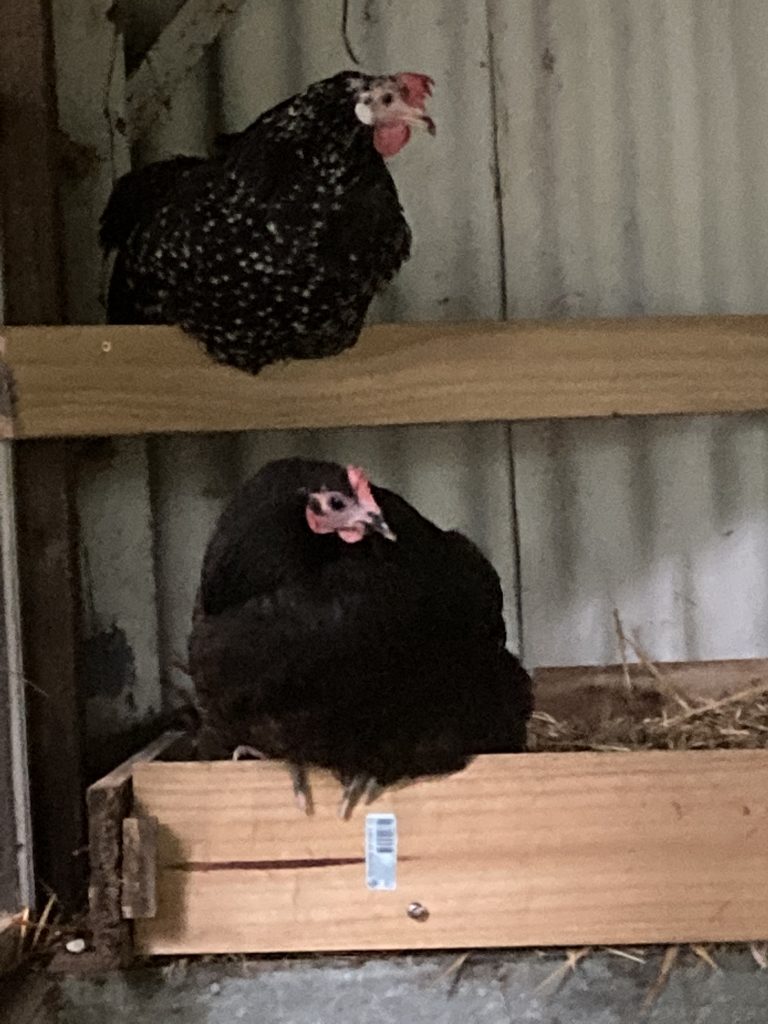
It was at this point that the story of Diogenes the philosopher came to my mind. Diogenes is the best known member of the Cynic school of philosophy. The word cynic meant ‘dog-like’ in Ancient Greek and the Cynics, Diogenes in particular, were known for living on the streets or in the woods or wherever they pleased. The Cynic philosophy is a fascinating one and was a prelude to the Stoic philosophy. It eschews social convention and encourages people to live according to their own nature in whatever way they see fit. One of the most famous stories that encapsulates this is the one where Diogenes was lying in the sun and Alexander the Great, who had heard about the great philosopher, came to visit. He asked Diogenes if there was anything he could do for him and Diogenes replied “step to the side, you are blocking the sun.” It is said that Alexander later asserted that if he was not Alexander, the most powerful man on earth at the time, he would rather be Diogenes.
These stories might be apocryphal but they do reveal something very important about social hierarchies which is that the most ‘freedom’ (in a very general sense of the word) is found either at the top or at the bottom. Interestingly, it seems that Alexander knew that and respected Diogenes as an equal. I am probably massively anthropomorphising the situation, but I think the same dynamic is going on in my chicken coop right now. In any case, I am pleased to have Diogena – the Cynic Chicken – in my backyard.
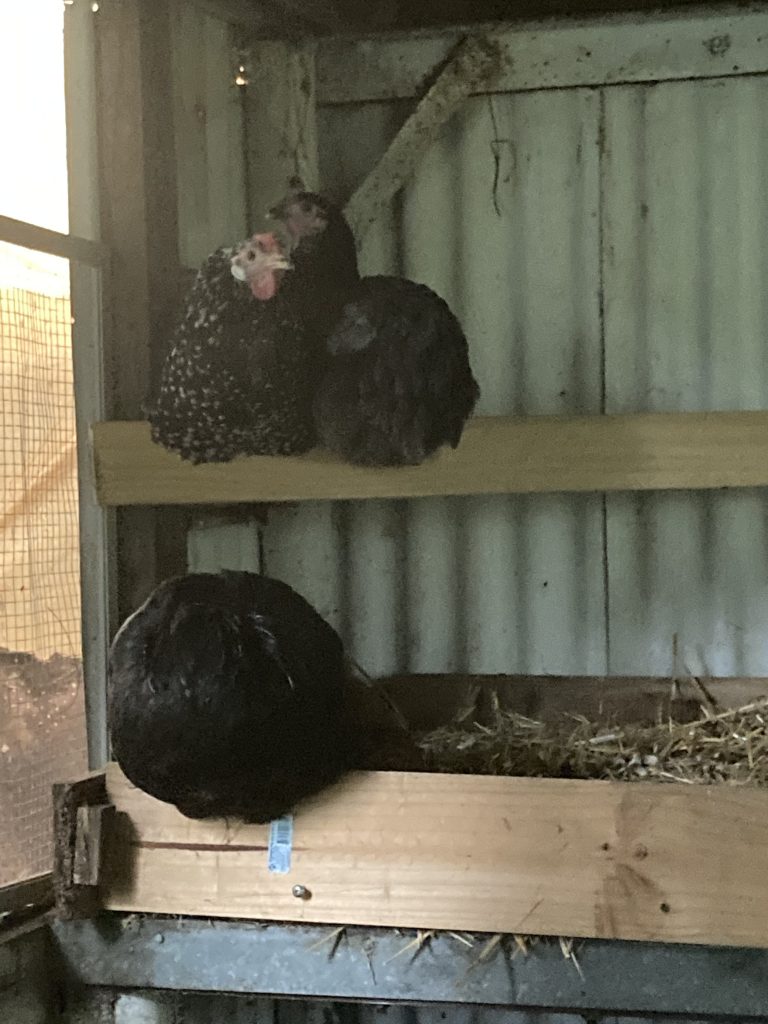
We had an aracona that behaved exactly the same. She was a trail blazer and her own hen!
Damo – now I want to get a whole flock on Anconas to see what happens.